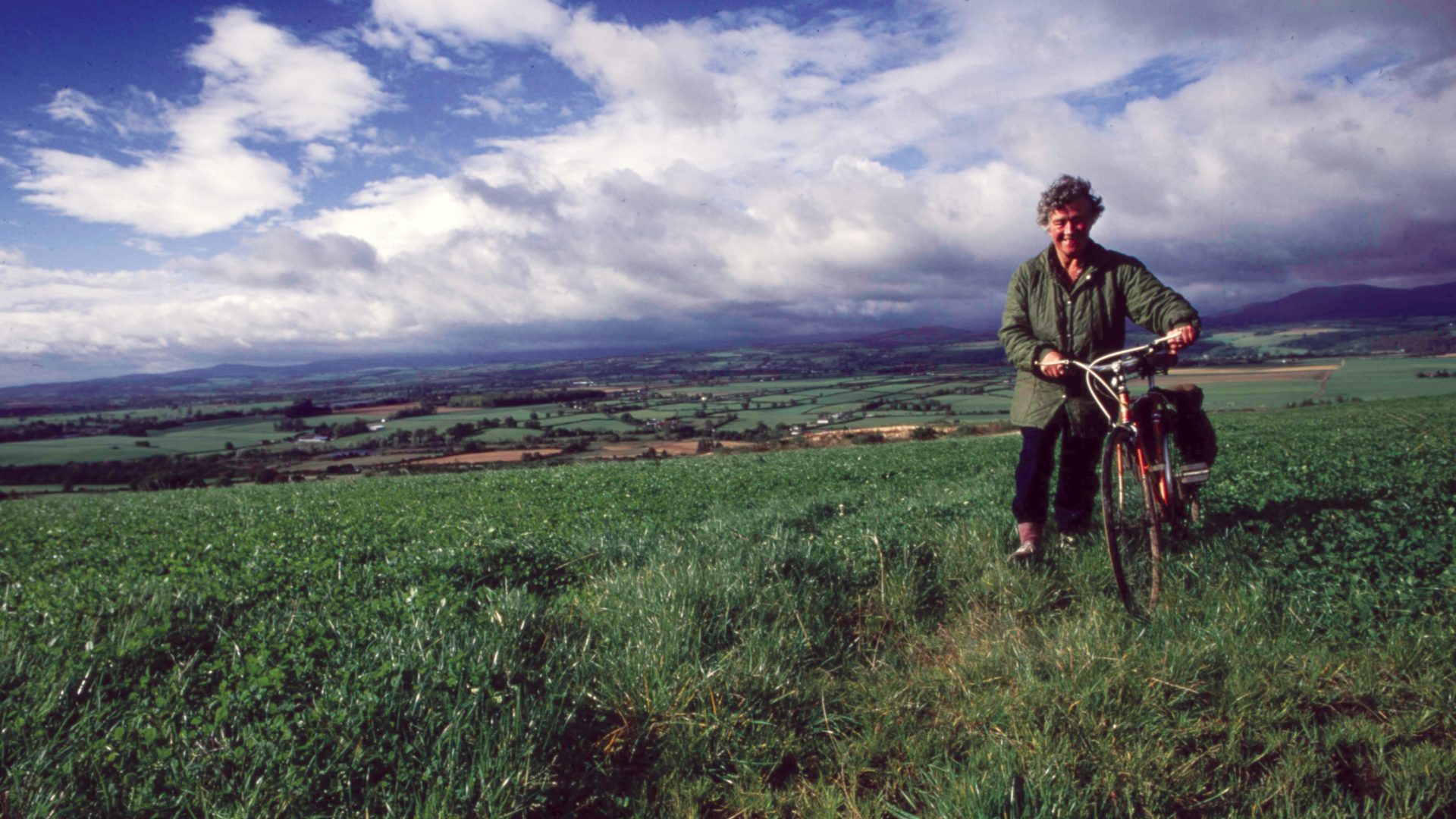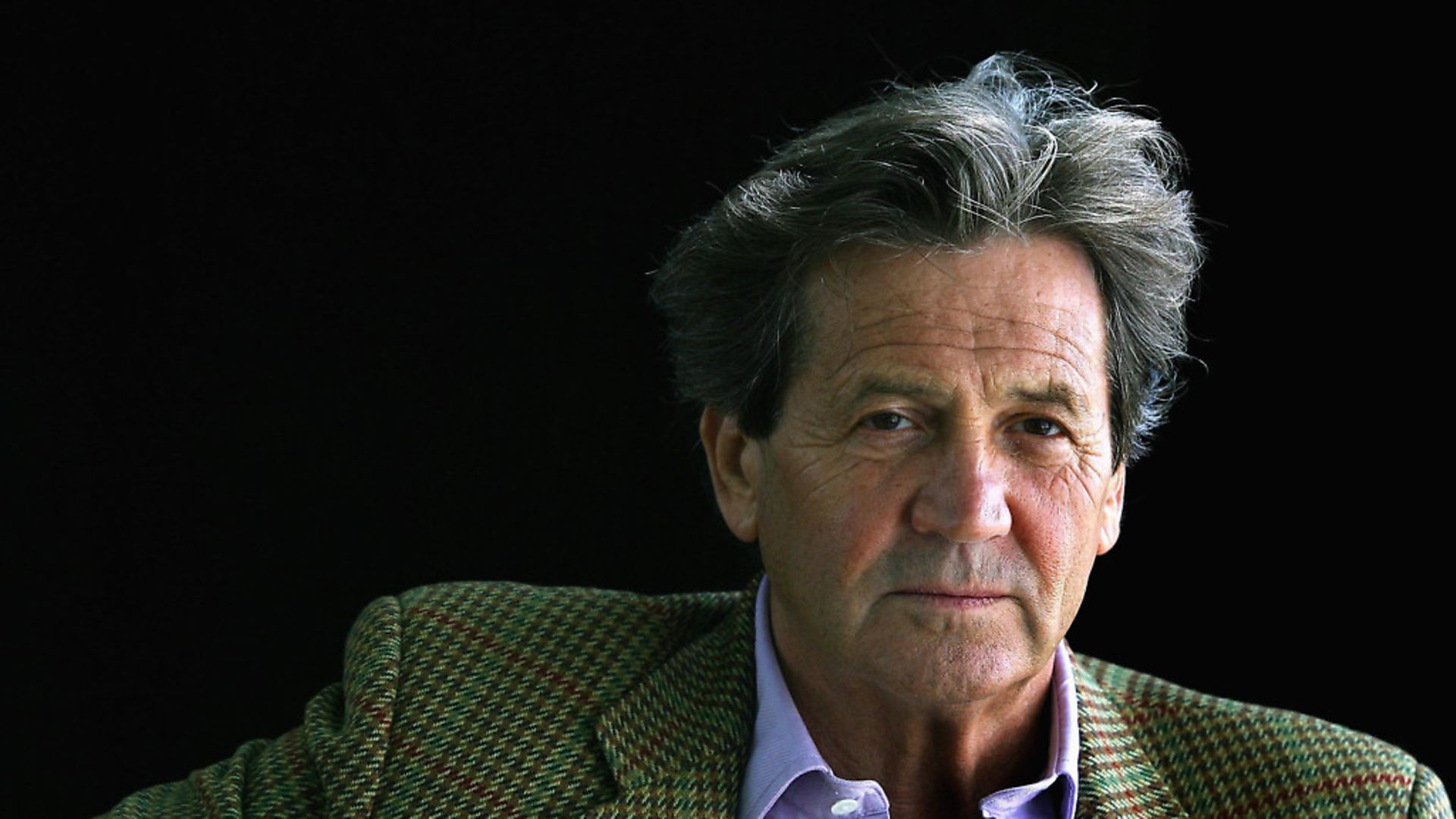There are few better literary gatherings than the Immrama Travel Writing festival in Lismore, County Waterford. Huddled quietly on the banks of the River Blackwater at the base of the Knockmealdown Mountains, Lismore is a scenic enough spot but on the face of it an unlikely magnet for the global travel writing community. Yet for two decades a string of stellar travellers including Michael Palin, Jan Morris, Paul Theroux, Kate Adie, Ranulph Fiennes, Terry Waite and Pico Iyer have made pilgrimages to this small rural town three hours south-west of Dublin to share their stories.
What draws notable itinerants from around the world to this rural backwater on the fringe of Europe is the special status it holds for writers and lovers of travel literature. Lismore was the hometown of the remarkable Dervla Murphy, who died on May 22 at the age of 90.
The author of 25 classic travel narratives published over half a century, Murphy was unique even in a genre boasting more than its fair share of singular characters. Eccentric, opinionated and with an inexhaustible
curiosity about parts of the world even the most intrepid travellers might avoid, she began her authorial career by cycling from Dublin to Delhi in
1963 and published her last book, an exploration of Israel and Palestine, in her mid-80s in 2015.
In between, she travelled through Ethiopia on a mule, spent a gruelling winter among the poor villagers of Baltistan, walked the crest of the Andes, spent six months working in a Tibetan refugee camp run by the Dalai Lama’s sister and, in her 70s, explored the farthest fringes of Siberia. She got tick-bite fever in South Africa, amoebic dysentery in Pakistan, hepatitis and gout in Madagascar, brucellosis in India, suffered a triple tooth abscess in Cameroon, broke a selection of ribs in various out-of-the-way locations and an ankle in Romania. In Belfast, a dog bit her.
Any combination of the above would have been enough to dissuade most people from ever leaving the house again, let alone venturing abroad, but
Murphy’s inability to resist the pull of the horizon never dimmed. “I simply
travel to enjoy myself,” she said in 1982.
Other than when accompanied by her daughter Rachel, barely out of nappies before joining her mother donkey-trekking through Peru, Murphy always travelled alone. “To really enjoy travel you have to be alone,” she said. “You are much more likely to make friends with people if you arrive alone on a bicycle than if you arrive by motor vehicle or train. It makes getting to know people so much simpler. It sends a message to people that you really do trust them.”
Yet for all her hardships, perilous adventures and run-ins with some of the world’s most debilitating diseases, few things irked Murphy more than being called courageous. “You’re only courageous if you do something you’re afraid of doing,” she said. “I am fearless, a totally different thing. Courage is a virtue, you’re overcoming fear. When you’re fearless there’s nothing to overcome.”
Fearless she may have been, but she wasn’t reckless. She always carried a knife for self-defence and, on her early journeys, a pistol that was fired on two occasions, once when attacked by wolves in Bulgaria and once in Azerbaijan when attacked by a man.
Murphy lived with an unshakable conviction she would survive, forged in her early teens when she set out from Lismore to climb a mountain she could see from her bedroom. It was 3,000 feet high, she fell into a bog on its lower slopes and the trek took so long she had to spend the night on its slopes. As cold and as frightened as she was, Murphy never once doubted
she was going home.
This fearlessness also allowed her to endure – and enjoy – serious hardship.
She was far happier sleeping on a dirt floor listening to rats scrabbling in the
dark than in the decadence of a hotel bed. For one thing, how could she look
the people she met in the eye, people with nothing, if at the end of the day she put away her notebook and headed back to an air-conditioned room for a hot shower?
It was all part of a travel philosophy set out in her first book Full Tilt: Ireland to India with a Bicycle, where she lamented “the general attitude to my conception of travelling, which I once took for granted as normal behaviour but which strikes most people as wild eccentricity merely because it involves a certain amount of what is now regarded as hardship but was to all our ancestors a feature of everyday life – using physical energy to get from point A to point B”.
On her 10th birthday, Murphy received the two gifts that set the course of her life: a secondhand bicycle and an atlas of the world. Poring over the maps she resolved to ride her bike to India as soon as the opportunity arose.
It would take until her early 30s before she could set off. The daughter of the
Waterford county librarian – a man whose Irish republican activities had put him in Wormwood Scrubs during the 1920s – Murphy was forced to leave school at 14 in 1945 to care for a mother suffering so badly with rheumatoid
arthritis she could barely fend for herself. Within weeks of her mother’s death in 1962 Murphy packed a change of clothes, a pair of stout walking boots, some water purification tablets and a gun, climbed on to her bicycle and left Lismore for Delhi.
She hadn’t intended to become a writer. Full Tilt only appeared after a chance encounter in India with Penelope Betjeman, who found her so intriguing she put Murphy in touch with her poet husband’s publisher, John Murray. The book that followed came out of the letters she had sent home, forging an informal, epistolary style that remained almost unchanged throughout a career in which each book was written purely to raise funds for the next adventure.
Rachel arrived in 1968, the result of a relationship with Terence de Vere White, the married literary editor of the Irish Times. Being a single mother in Ireland half a century ago was tougher than in most places but, 37 and financially independent, Murphy cared little for the tutting disapproval of the judgmentally religious.
If pregnancy wasn’t going to stop her travelling – “The gynaecologist was such a bore,” she recalled of attempts to dissuade her from a trip to eastern Turkey, “he said I had to be checked up every fortnight because I was an old mother so I told him to get stuffed” – Rachel’s arrival kept her in Lismore
only as long as necessary. Her daughter was barely five when they set off for a trek through the Andes.
Murphy’s work became more political as she grew older. In 1978 she immersed herself in the opposing communities of Northern Ireland for A Place Apart, a book that apparently prompted Margaret Thatcher to “do something about Ireland”. The following year she was visiting friends in Pennsylvania when a radiation leak at the Three Mile Island nuclear power plant forced the evacuation of more than half a million people.
“There was nothing I as an ordinary human being could do to protect me or my daughter,” she said. “If the entire area had become highly radioactive we, along with everyone else, would have become impotent victims.”
The experience produced the antinuclear manifesto Race to the Finish?
In 1985’s Tales from Two Cities, she spent time in Bradford and Birmingham seeking to understand the racial tensions thrumming through 1980s Britain. She plunged into the Handsworth riots and won over a Rastafarian community by producing photographs of herself in Ethiopia with Haile Selassie’s descendants.
“You can hardly name-drop more effectively than by recalling your friendship with God’s granddaughter,” she wrote.
She travelled through Rwanda less than two years after the genocide, arrived in Romania a fortnight after the fall of the Ceauşescus and, shortly after her 80th birthday, travelled through Israel and Gaza on a journey that produced her last two books. If emphysema hadn’t finally stopped her wandering there’s every chance Murphy would have been spreading a map of Ukraine in front of her and thoughtfully tapping her lips with a forefinger long before now.
Stilled though her cycle wheels became, she never lost her curiosity about the world or interest in its people. When interviewers came to visit they would usually find themselves departing a day later than planned with a skull-cracking hangover, even after Murphy had stopped brewing her own 14% proof beer (her Desert Island Discs luxury was a still, to ferment fruit into booze).
Her death marks the end of an era of great adventurers and this month’s Lismore travel writing festival will have a sombre feel. Yet Murphy’s is a life to be celebrated, a remarkable woman who believed in the fundamental goodness of people.
“Whether we are vegetarians or will only eat halal meat,” she wrote, “whether we insist on arranged marriages or don’t bother marrying, whether we believe in eight thousand gods or one god or no god, none of these differences is significant beside our common humanity.”
Dervla Murphy, November 28 1931 – May 22 2022




